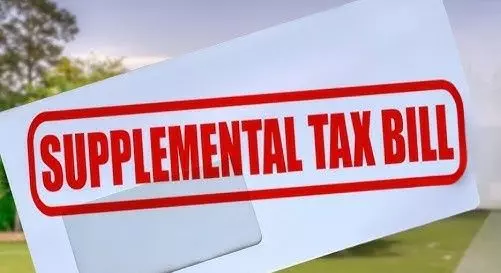What Buyers Need to Know About Supplemental Tax Bills

When you purchase a home, you expect property taxes to be part of the equation—but many buyers are surprised when an unexpected supplemental tax bill arrives in the mail. Don’t panic! This is a normal part of homeownership, especially right after buying. Let’s break down what it means, why it happens, and how to prepare for it.
What Is a Supplemental Tax Bill?
A supplemental tax bill is a separate property tax bill that reflects the difference between the previous owner’s assessed value and the new assessed value based on your purchase price.
When a property changes hands, the county reassesses its value. If the new assessed value is higher than what the previous owner paid, you’ll receive a one-time supplemental bill to “catch up” on that difference.
When to Expect It
Supplemental tax bills typically arrive within a few months after closing—sometimes sooner, sometimes later. The exact timing depends on how quickly your county processes the reassessment.
➡️ Important: This bill is separate from your regular property tax bill and is not included in your escrow account. That means you must pay it directly to the county tax collector.
Example
Let’s say:
-
The previous owner’s assessed value was $400,000
-
You bought the home for $600,000
-
The property tax rate is 1%
Your supplemental tax would be based on the difference in value ($200,000 × 1%), meaning you could owe roughly $2,000 for that adjustment period.
How Many Supplemental Bills Can You Receive?
You might receive one or two supplemental bills depending on when you purchased the property and the tax calendar in your county. For example, if you close mid-year, you could receive a supplemental bill covering the remainder of that fiscal year and another for the following year.
Why It Catches Buyers Off Guard
Many buyers assume their property taxes are fully covered in their monthly mortgage payments. However, since the supplemental bill is not part of escrow, your lender doesn’t pay it automatically. Missing the due date could result in penalties and interest, so make sure to keep an eye out for it in the mail.
What You Can Do
-
Set aside extra funds after closing. Expect a supplemental bill and be financially prepared.
-
Watch your mail. The bill will come directly from your county tax assessor’s office.
-
Contact your lender or tax advisor if you’re unsure whether a bill has been paid or needs to be handled separately.
-
Ask your agent. Your real estate agent can help you understand what to expect based on local tax timelines.
Key Takeaway
A supplemental tax bill isn’t a mistake—it’s simply the county’s way of updating taxes to match your new property value. Planning ahead can help you avoid any surprises and ensure your first year as a homeowner goes smoothly.
Have questions about your property taxes or home purchase?
Reach out to me anytime — I’m happy to help you navigate the process and make homeownership stress-free!
👉 Call/Text Brent Blay at (909) 641-8751
📧 Email: BrentBlay@parkregency.com
🔗 linktr.ee/BlayRealEstateGroup
Categories
Recent Posts











"Alone We Can Do So Little, Together We Can Do So Much"

